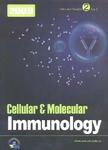The impact of the TIM gene family on tumor immunity and i mmunosuppression
The impact of the TIM gene family on tumor immunity and i mmunosuppression作者机构:Hokkaido University Hokkaido Japan Research Center for Infection-Associated Cancer Institute for Genetic Medicine Hokkaido UniversityHokkaido Japan
出 版 物:《Cellular & Molecular Immunology》 (中国免疫学杂志(英文版))
年 卷 期:2014年第11卷第1期
页 面:41-48页
核心收录:
学科分类:0710[理学-生物学] 07[理学] 071009[理学-细胞生物学] 09[农学] 0901[农学-作物学] 090102[农学-作物遗传育种]
基 金:supported by a Grant-in-Aid for Scientifiic Research and Scientific Research for Innovative Areas from the Ministry of Education Culture Sports Science and Technology and the Ministry of Health Labor and Welfare (MJ)
主 题:antitumor immunity immunoevasion immunosurveillance TIM tumorigenic inflammation
摘 要:Tumor immunoevasion is an advanced phase of cancer immunosurveillance in which tumor cells acquire the ability to circumvent host immune systems and exploit protumorigenic inflammation. T-cell immunoglobulin mucin (TIM) gene family members have emerged as critical checkpoint proteins that regulate multiple immune response phases and maintain immune homeostasis. Accumulating evidence demonstrates that tumor cells exploit TIM gene family members to evade immunosurveillance, whereas TIM gene family members facilitate the prevention of inflammation-related tumor progression. Thus, a comprehensive analysis to clarify the relative contributions of TIM gene family members in tumor progression may elucidate immunosurveillance systems in cancer patients.



